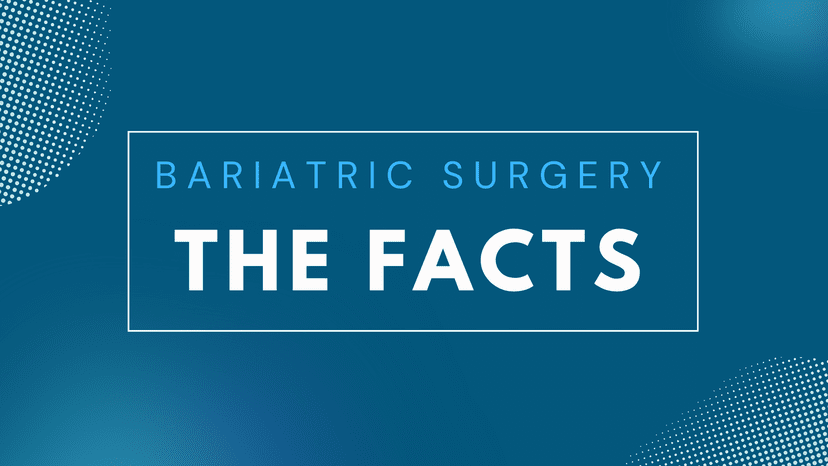You've Noticed You've Gained Some Weight Back After Your Weight Loss Surgery: What Next?

Understanding Weight Regain After Surgery
It's not uncommon for individuals to experience some weight regain following weight loss surgery. The reasons for this phenomenon are multifold, encompassing changes in metabolism, alterations in dietary habits, fluctuations in physical activity levels, and various psychological aspects that could influence post-surgery weight management.
Weight regain after surgery is a complex issue, with multiple factors at play. Here's more on these factors and how they can contribute to weight regain post-surgery:
Common Causes of Weight Regain
Understanding the reasons for weight regain post-surgery is crucial. Here are the core factors:
-
Adaptive Thermogenesis: This is the body's survival mechanism at work. After weight loss, the body's metabolism may decrease to conserve energy. This, in turn, can lead to weight regain as the body struggles to burn calories as efficiently as before.
-
Dietary Habits: Food intake and diet patterns play a significant role in maintaining weight post-surgery. If individuals revert to unhealthy eating habits or neglect portion control, it can trigger a weight regain.
-
Physical Activity: Adequate and consistent physical activity is required to maintain weight loss. A lack of regular exercise post-surgery can contribute to weight regain.
Metabolic and Lifestyle Factors
After weight loss surgery, there are significant changes in the body's metabolic processes. After losing a large amount of weight, the body often enters a state of adaptive thermogenesis, where the metabolism slows down to conserve energy. This 'low-energy state' can make the body more prone to weight regain.
Lifestyle factors also come into play. After recovery from surgery, some people may find it hard to maintain the dietary changes or the increased activity levels necessary for sustaining weight loss, leading to potential weight regain.
Psychological Aspects of Weight Management Post-Surgery
Finally, we mustn't overlook the psychological aspects surrounding weight management post-surgery. Dealing with significant lifestyle changes following surgery can be emotionally challenging. Emotional stress can have a direct impact on weight management strategies, and post-surgical patients may turn to food as a coping mechanism during hard times, leading to weight regain.
In addition, some patients may experience self-esteem and body image issues after dramatic weight loss, which can lead to disordered eating and potentially, weight regain. Understanding and addressing these psychological aspects is integral to effectively manage weight post-surgery.
Strategies for Managing Weight Regain
Experiencing some degree of weight regain after bariatric surgery is not uncommon or necessarily indicative of surgical failure. However, managing this situation effectively is essential. Three key strategies that individuals can implement to address and manage weight regain after bariatric surgery include revisiting dietary guidelines, incorporating regular physical activity, and seeking support from healthcare professionals, nutritionists, and support groups.
Revisiting and Adjusting Your Diet
Firstly, re-evaluating and adjusting dietary habits is critical in addressing weight regain. It’s natural to stray from dietary guidelines over time, but falling back into unhealthy eating patterns can significantly contribute to weight regain. For instance, you may find yourself consuming larger meal portions, indulging in high-calorie foods too often, or skipping meals, all of which can lead to weight gain.
To manage this, make an effort to:
-
Follow the specific dietary guidelines provided by your healthcare professional or nutritionist diligently.
-
Reintroduce portion control. This involves balancing quantity and quality of foods to ensure you're getting necessary nutrients without overeating.
-
Minimize consumption of high-calorie, low-nutrient foods like sugary snacks, fried foods, and processed products.
-
Keep a food diary. Tracking your meal patterns, portion sizes, and feelings of hunger and fullness can provide insight into your eating patterns, enabling you to make effective changes.
Incorporating Regular Physical Activity
Alongside dietary changes, re-incorporating or increasing physical activity is a crucial strategy to combat weight regain. Exercise helps not only in burning calories but also in maintaining muscle mass during weight loss, thereby promoting a healthier body composition.
Here, it's not merely about hitting the gym. Find a physical activity you enjoy to ensure consistency. Whether it’s swimming, cycling, dancing, hiking, or practicing yoga, the target should be to achieve at least 150 minutes of moderate-intensity or 75 minutes of high-intensity activity each week, as recommended by the Physical Activity Guidelines for Americans.
Don't forget, starting small and gradually increasing the intensity and duration of workouts can ensure sustainable progress.
Seeking Professional Advice and Support
Lastly, seeking advice from healthcare professionals or joining support groups is invaluable in managing weight regain. A healthcare professional can help identify any underlying medical or behavioral reasons for your weight regain, guide appropriate changes, and monitor your progress.
Nutritionists can help refine dietary strategies to suit your specific requirements. They will consider factors like age, gender, case-specific complications after surgery, and personal preferences while designing a meal plan.
Support groups can offer emotional support, enhance motivation, and provide practical tips. Encouragement from peers who've faced similar struggles can be particularly beneficial in maintaining long-term weight management strategies.
In conclusion, managing weight regain after bariatric surgery involves a multifaceted approach. Adopting an attitude of patience, persistence, and self-care, and always remembering that this is part of a longer journey, can greatly facilitate your success in managing weight regain.
Preventing Further Weight Regain
When it comes to successful long-term weight management after weight loss surgery, it's essential to focus on sustainable lifestyle changes and strategies. This involves setting realistic goals, monitoring your weight and dietary intake, managing stress effectively, and garnering support from your community.
Setting Realistic Goals and Monitoring Progress
Making realistic, gradual goals can be the difference between sustained weight loss and regain. It's essential to remember that weight loss is a journey, and change takes time. Rather than striving for perfection or an "ideal" weight, aim for steady, consistent progress.
An invaluable tool in this journey is monitoring progress. Keep track of your eating habits, physical activity levels, weight changes and body measurements. This data can help you identify trends, catch potential issues early on, and stay accountable to your goals. Seeing your progress over time can also boost motivation and reinforce positive behaviors.
Addressing Emotional Eating and Stress Management
Emotional eating and stress can be major triggers for weight regain. They often lead to consuming excessive calories from high-sugar, high-fat comfort foods. Understanding and addressing emotional eating is a crucial step towards sustained weight management.
Stress management practices like yoga, meditation and cognitive-behavioral techniques can mitigate the impact of stress on your dietary choices. It's also beneficial to identify non-food related coping mechanisms, such as reading, taking a walk, or talking to a friend.
Building a Support System for Long-Term Success
Sustained weight management is seldom a solo endeavor. Building a supportive community can provide you with the motivation, support, and resources necessary to maintain your progress. This community can include health professionals, fitness instructors, family, friends, or fellow weight loss surgery patients.
Involving others in your journey can make the process more enjoyable and less daunting. It provides a network of individuals who understand your struggles, celebrate your victories, and offer invaluable advice based on their professional expertise or personal experiences.
Remember, successful weight loss and sustained weight management are achievable, and they begin with the implementation of sustainable lifestyle changes that fit into your daily routine. Above all, take care of your mental and emotional health alongside your physical wellbeing. Develop an understanding and responsive attitude towards your body's needs and signals, providing it with the nourishment and care it deserves. Celebrate your progress, no matter how small, and remember that the journey to sustained weight management is a marathon, not a sprint.
In Summary
This blog post has delved into understanding weight regain after surgery. We've unraveled the complexity of this issue, highlighting metabolism changes, dietary habits, physical activity, and psychological aspects as significant contributors to weight regain post-surgery. The post also outlines effective strategies to manage this challenge and prevent further weight regain.
To handle and limit weight regain after surgery, consider these three strategies:
-
Revisiting and Adjusting Your Diet: Stick to the dietary recommendations provided by your healthcare professional diligently. Pay particular attention to portion control, reduce high-calorie, low-nutrient food intake, and maintain a food diary to monitor eating patterns.
-
Incorporating Regular Physical Activity: Ensure to include a physical activity you enjoy in your daily routine at least 150 minutes a week, gradually increasing the intensity and duration of workouts for sustainable progress.
-
Seeking Professional Advice and Support: Consult with healthcare professionals and nutritionists to fine-tune your dietary plans and address underlying issues that may contribute to weight regain. Join support groups for motivation, practical tips, and peer support on your weight management journey.
To prevent further weight regain and ensure long-term weight management, focus on the following:
-
Setting Realistic Goals and Monitoring Progress: Remember, weight loss is a journey. Set measurable, gradual goals and consistently monitor your eating habits, physical activity levels, and weight changes to identify patterns and adjust accordingly.
-
Addressing Emotional Eating and Stress Management: Emotional stress can trigger weight regain. Engage in stress management practices such as yoga and meditation, and develop non-food related coping mechanisms.
-
Building a Support System for Long-Term Success: Build a network of family, friends, health professionals, and fellow weight loss surgery patients, who provide emotional and practical support on your journey.
Remember, your journey to sustained weight management after surgery is not a sprint; it's a marathon. Adopt an attitude of patience, persistence, and self-care, and keep in mind that re-adjustments to lifestyle changes are part of the process. Taking care of your mental and emotional health is just as important as your physical wellbeing. Celebrate small victories and remain responsive to your body's needs, providing it with the care it deserves.




